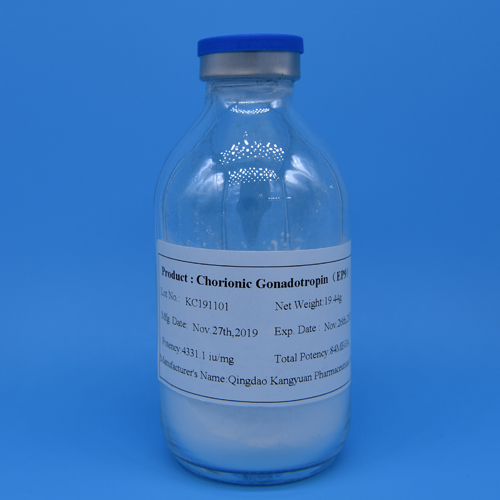Gonadotropins (Gn) are glycoprotein hormones that regulate gonad
development in vertebrates and promote the production and secretion of sex
hormones. For example, luteinizing hormone (LH) and follicle-stimulating
maturation hormone (FSH) secreted by the anterior pituitary gland work
cooperatively to stimulate the development of germ cells in the ovary or testis
and the production and secretion of sex hormones. Human placenta secretes
chorionic gonadotropin (HCG), which promotes progesterone secretion by the
corpus luteum during pregnancy. HCG can be present in the urine at the beginning
of pregnancy, reaching its peak in the second month of pregnancy, and is often
used as a clinical pregnancy indicator.

Second, the function of
LH is also known as interstitial cytohormone (ICSH) because it acts on the
interstitial cells of the testis and stimulates the production and secretion of
androgens. The main effect of LH on the ovaries of female animals is to
selectively induce the rapid growth of individual follicles before ovulation.
When LH secretion reaches orgasm, it triggers ovulation and converts the
follicle wall into corpus luteum and secretes progesterone after ovulation. The
important role of FSH is to promote the growth and development of follicles in
the ovary and sperm production in the seminiferous tubules of the testis in
males.
Three, the application
Gonadotropin obtained from animal pituitary gland has been widely used in
animal husbandry and aquaculture, but has no effect on human beings. HCG can be
prepared from the urine of pregnant women, or the mixed preparation of LH and
FSH extracted from the urine of menopausal women, referred to as human
menopausal gonadotropin (HMG), which can be used to treat hyposexual dysfunction
clinically.